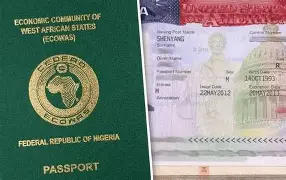The United States is quietly revoking valid visas issued to thousands of Nigerian citizens—often with no prior warning or explanation—citing new “security concerns” as justification. While Washington insists these actions fall within legal authority under Section 221(i) of the Immigration and Nationality Act, affected Nigerians report being blindsided at airports or by sudden passport demands and cancellations.
Officially the U.S. states that visa holders are subject to continuous vetting, and any indication of ineligibility—such as overstays, criminal activity, or potential terrorism links—can trigger revocation even after issuance. Yet many Nigerians with spotless records—students, professionals, entrepreneurs—are now stripped of access without due process.
Earlier in July 2025, the U.S. rolled back Nigerian non-immigrant visas from five-year multiple entries to single-entry permits valid just three months. Although the State Department had stated that visas issued before June 9 2025 would remain valid, mass revocations soon followed—undermining that assurance and raising questions about transparency.
Affected Nigerians were often informed that “new information” had emerged post-issuance—but were given no specifics, no appeal, and no recourse. The embassy’s posture, fraught with legalism but not clarity has deepened frustration among those impacted.
At its core, this policy may be legally grounded, but morally, it reeks of unfairness: individuals punished without evidence, lives upended over undisclosed intelligence, and a powerful country invoking “security” to sidestep accountability.

